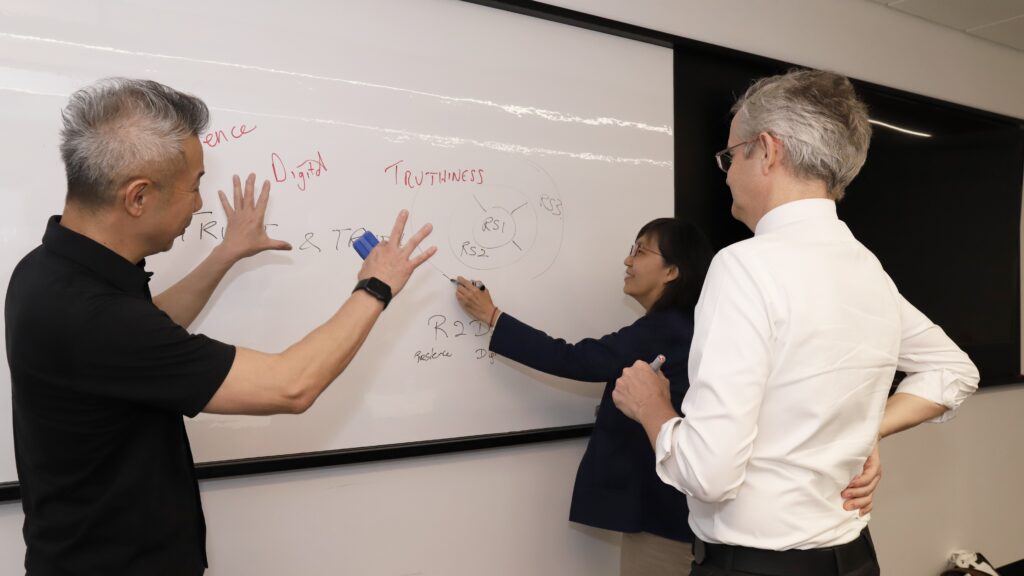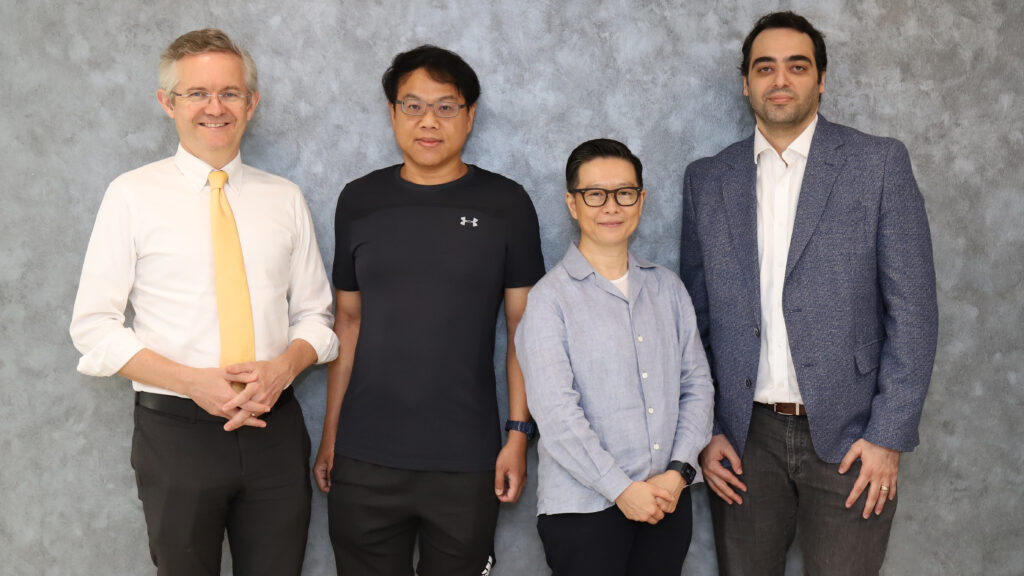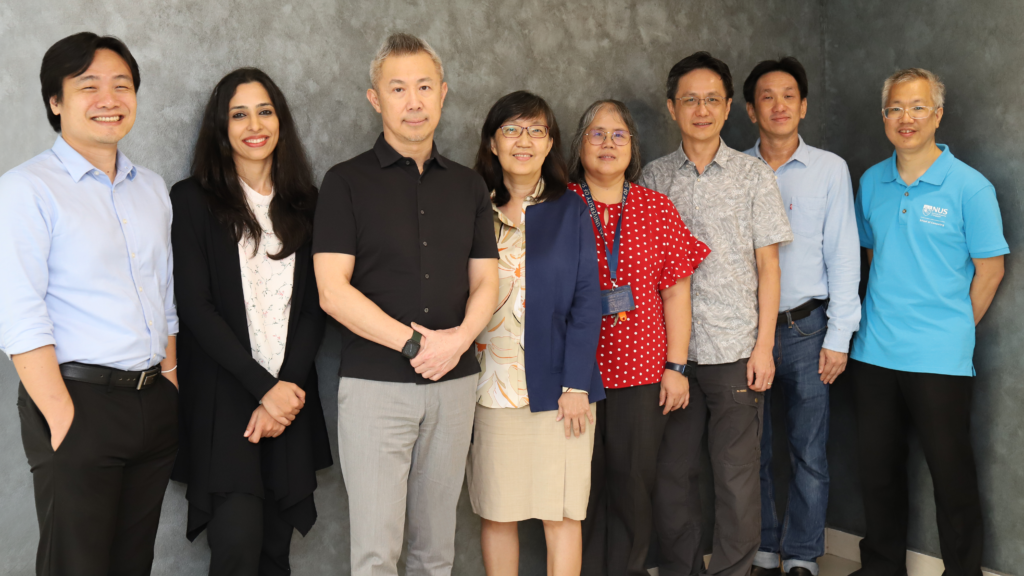Building Digital Information Resilience in a Post-Truth World
June 20, 2023
IN BRIEF | 5 min read
- An interdisciplinary team of NUS researchers are embarking on a five-year project to investigate digital information creation, dissemination and consumption through a lens of consumer behaviour, hoping to identify vulnerabilities in the digital information pipeline, and develop tools and strategies needed to instil digital information resilience in online citizens.

The proliferation of mis-, dis- and mal-information (MDM) has been recognised as one of the biggest challenges faced in this century. It can mislead individuals and organisations into making potentially harmful decisions, and has been shown to divide society on contentious yet important issues.
Misinformation related to vaccine safety, for instance, is believed to have contributed to vaccine hesitancy, undermining efforts to contain the COVID-19 pandemic. During the 2016 United States presidential election, the spread of false information was linked to foreign interference campaigns aimed at further dividing what was a highly politicised social landscape. In response, MDM, colloquially known as “fake-news”, was described as a genuine threat to democracy.
From an academic standpoint, their definitions are clear; misinformation is false or misleading information, disinformation is false information used to deceive others, while mal-information uses true information maliciously, to deceive or inflict personal harm. From a practical standpoint however, the presence and effect of MDM is far less clear; and this is a factor that makes it such an effective tool for those with malicious intent. When falsity in information goes unnoticed, or is accepted as truth, it will spread rapidly, and is inherently difficult to correct.
As consumers of digital information become increasingly aware of the presence of MDM in the digital space, and its ability to deceive and misguide them, trust in news and digital information is eroded.
Existing efforts to identify and curb the spread of MDM have mainly focused on technical interventions. The onus is placed on social media and news platforms to police their own content and flag to users when content may contain MDM. In some cases, users are banned or content removed. Some governments have also passed legislation to censor or correct verified false claims.
However, the effectiveness of such interventions remains questionable as they neglect to consider the influence of consumer behaviour, and in particular the beliefs and biases at play when individuals consume and interact with information. Once a false claim has been circulated and accepted as truth, its removal or censorship may be ineffective in correcting beliefs and reversing any damage that was done.
Consumer Behaviour at the Core
To effectively address the threat of MDM, the problem must be viewed holistically, and this means understanding not only the technical aspects of its creation and dissemination, but also the motivations and decisions at play when consumers seek or are served particular information.
Consumers often have inherent biases based on pre-existing beliefs and values, and these can influence how they will respond when presented with a piece of information, be it true or false.
The question researchers are asking is how such behaviours facilitate or amplify the presence and impact of MDM. To answer this, Professor Chen Tsuhan, NUS Deputy President (Innovation and Enterprise) and Professor Lee Mong Li from the NUS School of Computing and the NUS Centre for Trusted Internet and Community have embarked on a five-year programme that will investigate digital information creation, dissemination and consumption using a lens of consumer behaviour. Through this unique approach, they hope to identify vulnerabilities in the digital information pipeline, and develop tools and strategies needed to instil digital information resilience in online citizens.

The project, which has been funded by the Ministry of Education Academic Research Fund, will be conducted together with researchers from the NUS School of Computing, NUS Business School, NUS Faculty of Law, Lee Kuan Yew School of Public Policy at NUS and NUS Faculty of Arts and Social Sciences. This highly interdisciplinary team brings expertise across many facets of MDM detection, data analytics, computer vision, natural language processing, artificial intelligence and machine learning, behavioural economics, as well as sociotechnical policy and governance.
“The ability to distinguish fact from fiction is a critical skill, and our understanding of how consumers interact with information, be it true or false, is key to building a more informed and resilient society,” said Prof Chen.
Consumer behaviour will be integral to each aspect of the project.
For example, the team will explore how biases and social influences allow MDM to become entrenched in the online space, how beliefs are shaped by the types of information received, and how consumers draw information from various sources.
Their findings will inform and guide the identification and mitigation of vulnerabilities in the digital information pipeline that enable MDM to proliferate. Mitigation strategies and technologies will then be developed with an aim to nudge behaviours, and ensure only trustworthy, truthful information is consumed and shared.

Part of their investigations will, for example, focus on the formation of echo chambers, which arise when information that affirms beliefs or biases is shared between like-minded individuals. Recommendation and search algorithms that prioritise information diversity will be developed, along with machine learning algorithms that adapt to users’ tolerance for diversity.
“We will integrate more fine-grained and nuanced classification of news, where the extent of falsity is determined from interrelated components of news articles. Particular focus will be placed on online social networks, where users often share information consumed, and therefore serve as content creators,” explained Prof Lee.

Through this work, it is hoped that consumers will be empowered to compare and contrast information from multiple perspectives. Encouraging consumers to read more diverse digital information will be key to attaining a balanced and healthier use of digital media platforms.
Ultimately, the research aims to improve Singapore’s digital literacy. Information exploration and reasoning tools that enable consumers to pursue a deeper analysis of the digital information they consume, will be crucial to attaining digital information resilience and restoring trust in digital information.
This story first appeared in NUSnews on 19 June 2023.

